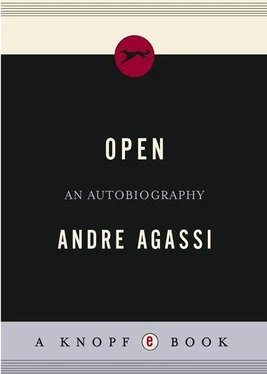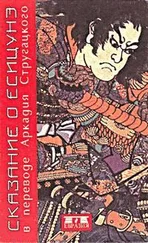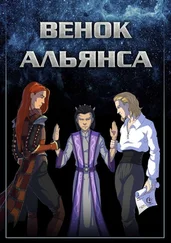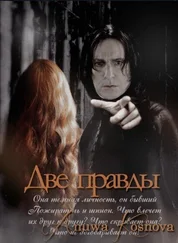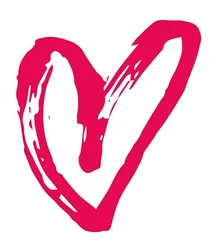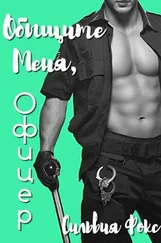Unknown - i a3f9967826fa0ec9
Здесь есть возможность читать онлайн «Unknown - i a3f9967826fa0ec9» весь текст электронной книги совершенно бесплатно (целиком полную версию без сокращений). В некоторых случаях можно слушать аудио, скачать через торрент в формате fb2 и присутствует краткое содержание. Жанр: Старинная литература, на английском языке. Описание произведения, (предисловие) а так же отзывы посетителей доступны на портале библиотеки ЛибКат.
- Название:i a3f9967826fa0ec9
- Автор:
- Жанр:
- Год:неизвестен
- ISBN:нет данных
- Рейтинг книги:5 / 5. Голосов: 1
-
Избранное:Добавить в избранное
- Отзывы:
-
Ваша оценка:
- 100
- 1
- 2
- 3
- 4
- 5
i a3f9967826fa0ec9: краткое содержание, описание и аннотация
Предлагаем к чтению аннотацию, описание, краткое содержание или предисловие (зависит от того, что написал сам автор книги «i a3f9967826fa0ec9»). Если вы не нашли необходимую информацию о книге — напишите в комментариях, мы постараемся отыскать её.
i a3f9967826fa0ec9 — читать онлайн бесплатно полную книгу (весь текст) целиком
Ниже представлен текст книги, разбитый по страницам. Система сохранения места последней прочитанной страницы, позволяет с удобством читать онлайн бесплатно книгу «i a3f9967826fa0ec9», без необходимости каждый раз заново искать на чём Вы остановились. Поставьте закладку, и сможете в любой момент перейти на страницу, на которой закончили чтение.
Интервал:
Закладка:
IN THE LAST FEW MONTHS Gil has given a few hard twists to my training. He’s had me eating like a Spartan warrior, and the new diet has honed me to a fine edge.
Also, I’ve had a cortisone shot, my third in the last year. Four is the maximum annual number recommended. There are risks, the doctors say. We simply don’t know cortisone’s long-term consequences for the spine and liver. But I don’t care. So long as my back behaves.
And it does. I reach the quarters, where again I face Federer. I can’t win a set. He dismisses me like a teacher with a dense pupil. He, more than any of the young guns taking control of the game, makes me feel my age. When I look at him, with his suave agility, his shotmaking prowess and puma-like smoothness, I remember that I’ve been around since the days of wooden rackets. My brother-in-law, after all, was Pancho Gonzalez, a champion during the Berlin airlift, a rival of Fred Perry, and Federer was born the year I met my friend Perry.
· · ·
I TURN THIRTY-FIVE just before Rome. Stefanie and the children come with me to Italy. I want to get out with Stefanie, see the Colosseum, the Pantheon, but I can’t. When I came here as a boy, and as a young man, I was too consumed by inner torments and shyness to leave the hotel. Now, though I’d love to see the sights, my back won’t permit it. The doctor says one long walk on pavement can mean the difference between the cortisone lasting three months or one.
I win my first four matches. Then I lose to Coria. Disgusted with myself, I feel guilty about getting a standing ovation. Again, reporters press the question of retirement.
I say: I only think about it fourteen times a year, because that’s how many tournaments I play each year.
In other words: That’s how many times I’m forced to sit through these news conferences.
In the first round of the 2005 French Open, I play Jarkko Nieminen, from Finland. Simply by stepping on the court, I set a record. My fifty-eighth slam. One more than Chang, Connors, Lendl, Ferreira. More than anyone in the open era. My back, however, is in no mood to com-memorate the occasion. The cortisone has worn off. Serving is painful, standing is painful.
Breathing is work. I think about walking to the net and forfeiting. But this is Roland Garros. I can’t walk off this court, not this one. They’ll have to carry me off this court atop my racket.
I swallow eight Advils. Eight. During the changeover I cover my face with a towel while biting on another towel to quell the pain. In the third set Gil knows something is terribly wrong.
After hitting the ball, I don’t sprint back to the center of the court. In all these years he’s never seen me fail to sprint back to the center of the court. It’s unthinkable, tantamount to him taking a men’s-room break during one of my matches. Afterward, walking with Gil to a restaurant, I’m bent over like a giant shrimp. He says: We can’t keep taking and taking from your body.
We pull out of Wimbledon, try to get ready for the summer hard courts. It’s necessary, but feels like a gamble. Now I’ll devote all my time and do all my work for fewer tournaments, which means the margin of error will be narrower, the pressure greater. The losses will hurt more.
Gil buries himself in his da Vinci notebooks. He’s proud that I’ve never injured myself in his gym, and now I can see that, as my body ages, he’s tense. His streak is on the line.
Some lifts you just can’t do anymore, he says. Others you’ll need to do twice as much.
We spend hours and hours in the weight room, discussing my core. From here until the finish line, Gil says, it’s all about your core.
BECAUSE I’VE PULLED OUT OF WIMBLEDON, newspapers and magazines print a fresh batch of eulogies. At an age when most tennis players—
I swear off newspapers and magazines.
In late summer I play the Mercedes-Benz Cup and I win. Jaden is now old enough to watch me play, and during the trophy ceremony he comes running onto the court, thinking the trophy is his. Which it is.
I go to Montreal and scratch and claw my way to the final against a Spanish kid everyone is talking about. Rafael Nadal. I can’t beat him. I can’t fathom him. I’ve never seen anyone move like that on a tennis court.
At the 2005 U.S. Open I’m a novelty, a sideshow, a thirty-five-year-old playing in a slam.
It’s my twentieth year in a row at this tournament—many of this year’s players haven’t been alive twenty years. I remember playing Connors and knocking him out of his twentieth U.S.
Open. I’m not the type to ask, Where did the years go? I know exactly where they went. I can feel every set in my spine.
I play Razvan Sabau, from Romania, in the first round. I’ve had my fourth and final cortisone shot of the year, so my back feels numb. I’m able to hit my meat-and-potatoes shot, which gives Sabau problems. When your basic shot hurts someone, when they’re falling behind on the shot you can make a hundred out of a hundred times, you know the day is going to be fine. It’s as though your jab is leaving marks on a guy’s jaw, and you still haven’t thrown your haymaker. I beat him in sixty-nine minutes.
Reporters say it was a massacre. They ask if I feel bad about beating him.
I say: I would never want to deprive anybody of the learning experience of losing.
They laugh.
I’m serious.
In the second round I play Ivo Karlovic, from Croatia. They list him as six foot ten, but he must have been standing in a ditch when they measured. He’s a totem pole, a telephone pole, which gives his serve a sick trajectory. When Karlovic serves, the box technically becomes twice as large. The net becomes a foot lower. I’ve never played anyone so big. I don’t know how to prepare for an opponent his size.
In the locker room I introduce myself to Karlovic. He’s sweet, fresh-faced, starry-eyed about being in the U.S. Open. I ask him to raise his serving arm as high as he can, then I call Darren over. We crane our necks, looking up, trying to see the tips of Karlovic’s fingers. We can’t.
Now, I say to Darren, try to imagine a racket in that arm. And now imagine him jumping.
And now—imagine where the face of the racket would be and imagine the ball zinging off that racket. It’s like he’s serving from the freaking blimp.
Darren laughs. Karlovic laughs. He says, I would trade you my reach for your return game.
Fortunately, I know Karlovic’s height will also be a liability for him at times in the match.
Low balls will be problematic. Lunging won’t be easy. Also, Darren says Karlovic’s movement is dodgy. I remind myself not to spend energy worrying about how many times he aces me.
Just wait for the one or two times he misses a first serve, then pounce on that second. Those will decide the match. And though Karlovic knows this also, I need to make him know it more.
I need to make him feel it, by applying pressure on the second serve, which means never missing.
I beat him in straight sets.
In the third round I play Tomas Berdych, a tennis player’s player. I faced him before, nearly two years ago, in the second round of the Australian Open. Darren warned me: You’re about to play an eighteen-year-old kid who has real game, and you’d better be on it. He can rip the ball up both sides, he has a bomb of a serve, and in a few years he’s going to be top ten.
Darren wasn’t overselling it. Berdych was one of the best tennis players I’d faced all year.
I beat him in Australia, 6–0, 6–2, 6–4, and felt fortunate. I thought: Good thing this is only best of five.
Now, surprisingly, Berdych hasn’t improved much since then. His decision-making still needs work. He’s like me before I met Brad: thinks he needs to win every point. He doesn’t know the value of letting the other guy lose. When I beat him, when I shake his hand, I want to tell him to relax, it takes some people longer than others to learn. But I can’t. It’s not my place.
Читать дальшеИнтервал:
Закладка:
Похожие книги на «i a3f9967826fa0ec9»
Представляем Вашему вниманию похожие книги на «i a3f9967826fa0ec9» списком для выбора. Мы отобрали схожую по названию и смыслу литературу в надежде предоставить читателям больше вариантов отыскать новые, интересные, ещё непрочитанные произведения.
Обсуждение, отзывы о книге «i a3f9967826fa0ec9» и просто собственные мнения читателей. Оставьте ваши комментарии, напишите, что Вы думаете о произведении, его смысле или главных героях. Укажите что конкретно понравилось, а что нет, и почему Вы так считаете.
